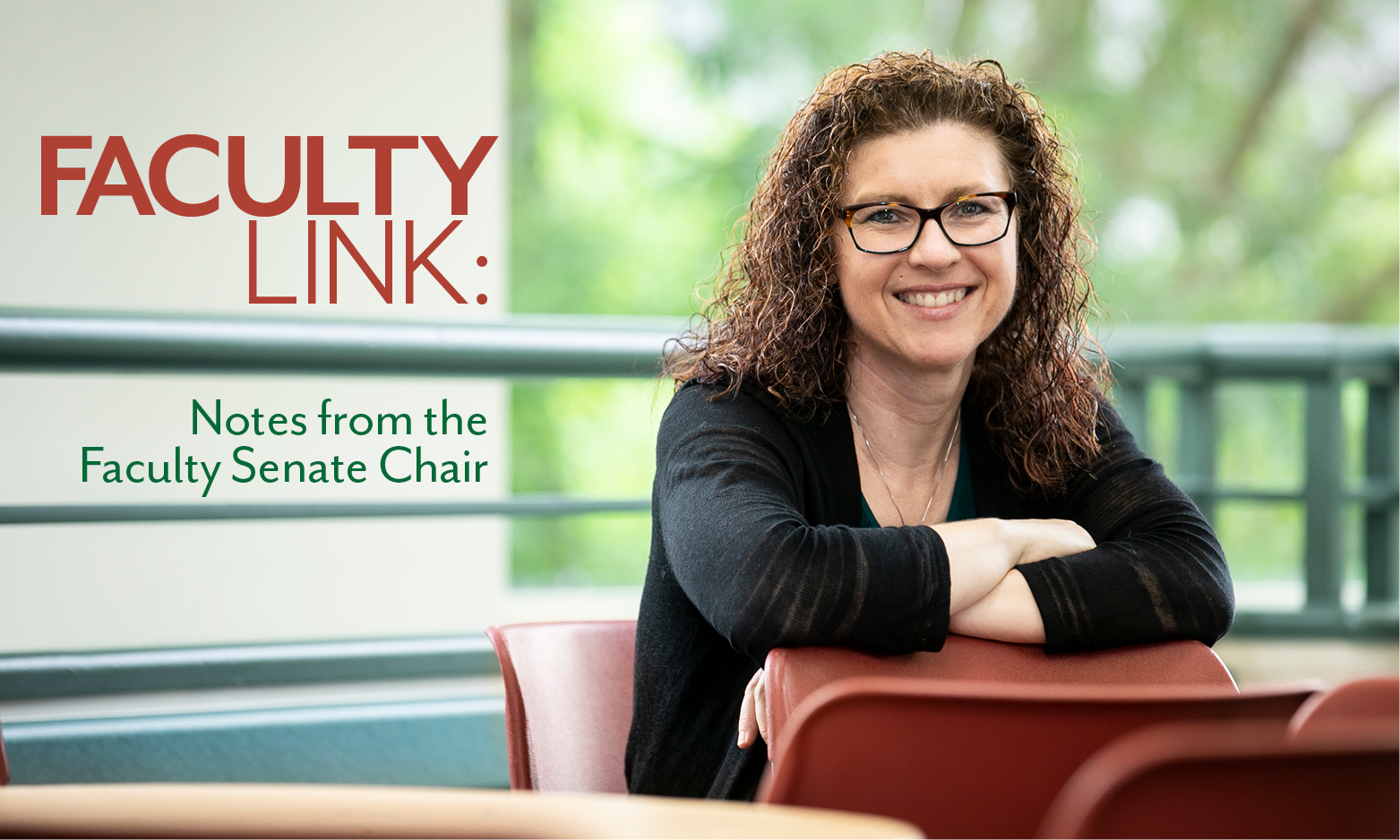I used to like the adage “Hindsight is 20-20” as a reminder of the value of reflecting on the past. Now, I’m not so sure I’ll be using that phrase ever again.
The year 2020 will be forever marked in my mind both as a comparison referent for the idyllic past and the (hopefully) more predictable future. As an institution, George Mason University will be able to mark that 2020 was a year of change, a year of challenge and a year of hope built in our community.
I had the honor of ushering in 2020 as co-chair of the Presidential Search Committee. When the Board of Visitors announced that Dr. Gregory Washington would become the eighth president of the university, the feeling of hope that blanketed the campus was palpable. Dr. Washington’s story is the Mason story, giving students someone in the office they knew could understand their lives. The search process had been conducted in a way that reflected the respect that the Board of Visitors had for the university, the Faculty Handbook, and the candidates. The welcome event on Feb. 27 represented change for the university as the community came together to celebrate our future.
And then came March. The COVID-19 pandemic ushered in some of the greatest challenges the university has faced, moving all instruction online overnight, requiring faculty, staff and students to completely rethink our approach to our work. We completed the semester safely, our students graduated, and we began the challenging task of figuring out how to navigate the uncertain financial and public health circumstances around us that resulted. The “Tiger Team” presented options for reopening the university in the fall; Faculty Senate held an open forum that documented the deep concerns of faculty for the education of Mason students, but also our own health and safety as well as that of our families.
On May 25, the world watched as George Floyd was killed. Black Lives Matter as a social movement had continued to mark the passing of the Black and Brown lives ended through police violence, but the world was at a different place in May. Mason students, faculty and staff were in a different place. Mason was a different place.
Fast forward through the summer, when Dr. Washington joined the campus community and challenged us to address the key issues of the time: structural racism, the pandemic and the post-pandemic world. Mason faculty had been an integral part of the Safe Return to Campus Plan, participating in all facets of the preparation and implementation of the fall reopening. Mason faculty had already risen to the challenge by joining Stearns Center learning communities to prepare to teach classes online: 298 faculty joined 14 cohorts to prepare for summer classes and 342 faculty joined 13 cohorts to prepare for fall. This fall, Mason faculty taught 9,279 courses, 5,573 of them fully online, 3,335 face-to-face, and 371 in a hybrid format. And 70 more faculty have joined five cohorts to prepare to teach online in the spring.
Mason faculty joined staff and students on the Anti-Racism and Inclusive Excellence Task Force, turning our disciplinary and research training inward to create a plan for building the community we believe reflects our values of inclusion. Anti-racism, diversity, inclusion and equity will not be buzz words at Mason but will be the foundations of our intellectual community. And foundations are built through collaborative engagement, difficult decision making, spirited discussions and ultimately the emergence of a shared vision of the future. These foundational activities are those in which Mason faculty are ready to engage.
As we look forward to 2021, Mason faculty will continue to welcome students into our intellectual community, providing courses and degree programs that push them to be more than they thought they could be; we will continue to welcome new faculty to be part of the community as well. Mason faculty will continue to engage in all levels of governance at the university, providing informed, spirited engagement on the key issues that face us as a university community. The Faculty Senate will continue to engage actively with the administration on these issues on behalf of the faculty.
But for now, I hope that each of you is able to take a moment to stop and reflect on how 2020 has changed you, taught you something about yourself you didn’t know. Be kind to yourself, because as part of our community, I am looking forward to your partnership in the spring.

